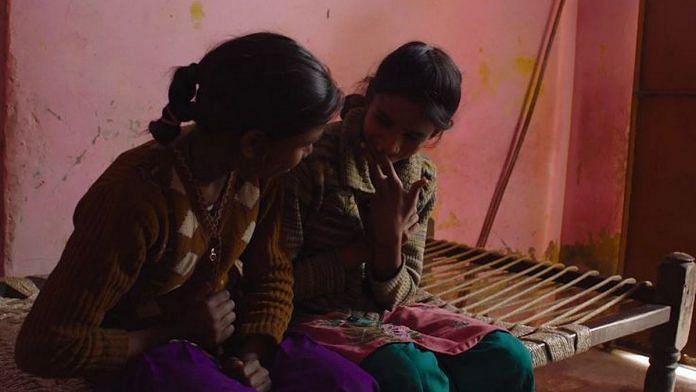Indian filmmakers need to tell authentic stories of life, love and family, Gilles Jacob had told me when I interviewed him at the Cannes Film Festival in 2017. They have to be true to themselves. “Tell splendid stories that will ring true all over the world,” he added. Jacob, the honorary director of the Cannes film festival, was a great admirer of Satyajit Ray, even going to the extent of ensuring that he had a special bed made for him every time he came to Cannes because he was so tall (6 feet, 4 inches).
It is advice Indian filmmakers have started to listen to, but clearly not enough either in quality or quantity. So here we are again, in our Slumdog Millionaire moment, revelling in our two Oscar victories with Indian connections, without being able to take full credit for them. In winning the Oscar for best documentary short, Period. End Of Sentence. put Arunachalam Muruganantham on the world map in ways that R. Balki’s Padman could not. Period was co-created by Melissa Berton, a teacher in California with some of her students at Oakwood High School. Together they started ‘The Pad Project’, a non-profit organisation fighting stigmas about menstruation and menstrual hygiene.
Yet it took an Iranian American director (Rayka Zehtabchi) and an American producer (helped by co-producer, the very Indian and the very able Guneet Monga) to get the film and the campaign surrounding it off the ground. Monga was ecstatic, as she should have been, but didn’t even get to make it to the stage with the acceptance team.
In Bohemian Rhapsody, a sitting duck of a subject for an Indian filmmaker, the movie almost completely obliterates Freddie Mercury’s Indian roots. That was mostly because Freddie himself was so embarrassed by his Indian heritage. Yet, in the age of diversity and black and brown power, it would have made complete sense to make a movie about a global rock star who felt marginalised because of his ethnicity and sexuality. But if you watch the film, there are only off-hand mentions of the family spending time in Zanzibar without going into details of Freddie Mercury a.k.a. Farrokh Bulsara’s time in Mumbai and then Panchgani. Actor Rami Malek, an Egyptian-American who has gained much fame for playing Mr. Robot, has been quoted as saying, “I think about Freddie’s time in India, especially what it would have been like for him to spend so many of his reformative years there. I think the film will speak very deeply to the people of India and everyone else for that matter, but especially to Indians.” But wouldn’t it have been wonderful if some of that was reflected in the movie?
But then who are we to complain about cultural appropriation when we don’t want to make enough real stories, and even when we do, they are usually intended either as vanity projects for stars looking to score points on the government’s ‘nation-building’ meter or as attempting to bolster their resumes with some ‘actorly’ accomplishments.
Also read: Menstrual hygiene must be made part of Swachh Bharat & Beti Bachao, Beti Padhao
We’ve been here before when Danny Boyle made Slumdog Millionaire in 2008, based on Vikas Swarup’s book, Q and A, and swept the Oscars with its spirited performances, foot-tapping music and salaams to the city of Mumbai. It was a book waiting to be adapted by an Indian filmmaker, but trust a Manchester-born Englishman to get there first. It made stars of A.R. Rahman, Dev Patel, and even Anil Kapoor, but it never did see a similar attempt from India.
Yes, we live in a global world where stories can be as local as they are international. Even in a post-Trump world, a movie like Black Panther triumphs because it encapsulates the spirit of learning from those least like us, best embodied in the Wakanda motto: The wise build bridges, the foolish build walls.
But surely our filmmakers can tell our stories as truly as possible, to as wide an audience as imaginable? Till then we will have to be content with scraps – such as Best Actress winner for The Favourite, Olivia Colman, discovering her family has roots in Kishanganj, Bihar.
The author is a senior journalist.




Surprised and disappointed you completely overlooked Smile Pinki which won an Oscar in the same category exactly 10 years ago. The 39′ documentary is available on the web…..
There’s so little context in this piece, I hope this helps:
Bohemian Rhapsody was only made the way it was because the filmmakers had to get the band Queen’s acceptance and approval at every step….the band controlled many of the music and story rights. Without their legal acceptance there would be no film. Though i can now imagine an Indian filmmaker shooting a film about a young freddie in India? There was an in depth news piece interviewing his indian friends that was moving.
Padman was made and aimed at an indian audience, it had a strong message and commercial Indian potential. It wasn’t designed to win an oscar. The oscar winning documentary was tiny and a labor of love. The two are different animals.
Slumdog WAS made by an indian filmmaker, it was called Salaam Bombay and Mira Nair (dismissed by indian male filmmakers when she was making her first films) went on to a hreat US career. And there have been Indian derivatives after Slumdog won the oscar; one was called Thanks Maa and I’m sure others….
I sincerely believe that outsiders can make great India-set films. By outsiders I also mean Indian women or dalits, tribals, the poor, etc. Basically anyone who can look at the country’s realities and its stories with fresh eyes and without assumptions.